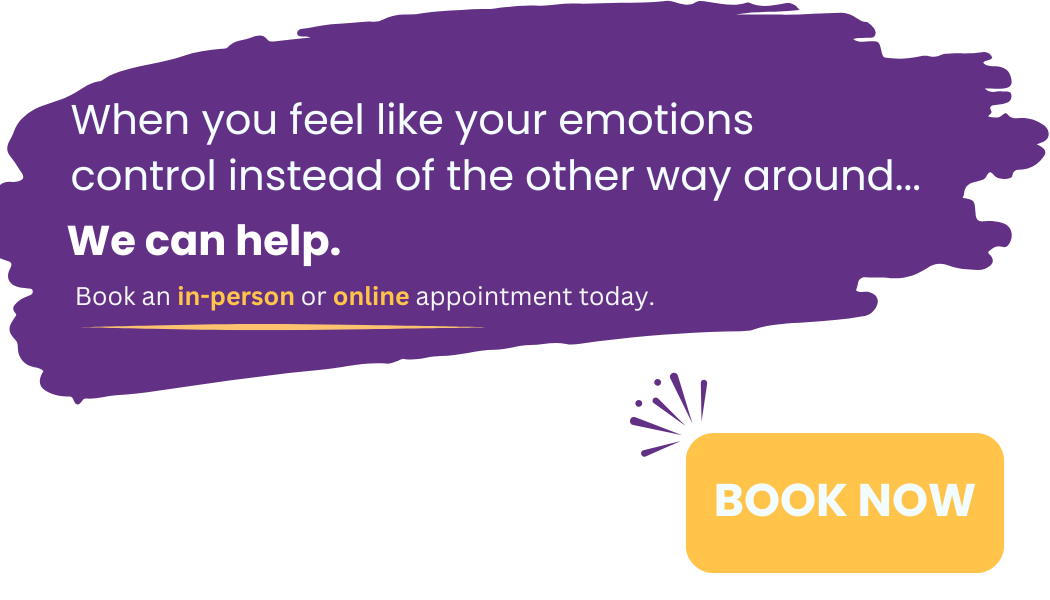Defining Dialectical Behavioral Therapy (DBT)

Dialectical Behavior Therapy (DBT) is a highly effective form of cognitive behavioral therapy (CBT) that focuses on helping individuals manage intense emotions, develop healthier coping mechanisms, and improve their overall quality of life.
Originally developed to treat borderline personality disorder, DBT was adapted to address a variety of other mental health conditions.
In this blog, we’ll explore what DBT is, how it was developed, the mental health conditions it treats, the skills it teaches patients, and examples of how DBT is commonly applied.
What is dialectical behavior therapy?
Dialectical behavior therapy is a type of therapy designed to help people who experience intense emotions and struggle to manage them effectively. It combines principles from cognitive behavioral therapy with mindfulness practices rooted in Eastern philosophy.
This therapy aims to strike a balance between two seemingly opposing forces: acceptance (acknowledging and accepting one’s emotional experience) and change (working to transform unhelpful behaviors and thought patterns). This is what makes DBT a “dialectical” approach — the integration of opposing concepts to reach a new understanding or outcome.
The primary goal of DBT is to help individuals develop skills to better regulate their emotions, improve interpersonal relationships, cope with distress, and live a life that feels more meaningful and balanced.
How DBT was developed
DBT emerged in the late 1980s by Dr. Marsha Linehan, a psychologist and researcher, as a treatment specifically designed for individuals with borderline personality disorder. Linehan, who struggled with her own mental health challenges, found that traditional CBT often fell short in treating individuals with severe emotional dysregulation and self-destructive behaviors, such as self-harm and suicidal thoughts.
Recognizing that individuals with BPD needed a therapeutic approach that emphasized both acceptance and change, Linehan combined techniques from CBT with mindfulness practices and created DBT.
Through clinical trials, DBT was proven effective in reducing suicidal behavior, improving emotional regulation, and helping individuals achieve greater stability in their lives. Over time, DBT has expanded to treat a range of other mental health conditions, including mood disorders, eating disorders, and substance use disorders.
Conditions DBT can treat
While DBT was originally developed to treat BPD, its scope has broadened to address a variety of mental health conditions.
Some conditions DBT is commonly used to treat include:
- Borderline personality disorder: DBT is the gold-standard treatment for individuals with BPD. It helps them manage their extreme emotional swings, reduce self-harm and suicidal behaviors, and improve interpersonal relationships.
- Depression: DBT can be used to help individuals with depression, especially those who have chronic or treatment-resistant depression, by teaching them skills to cope with emotional pain and restructure negative thought patterns.
- Anxiety disorders: DBT’s emphasis on mindfulness and emotional regulation can be beneficial for individuals struggling with anxiety disorders, helping them reduce rumination and avoid emotional overwhelm.
- Post-Traumatic Stress Disorder (PTSD): DBT helps individuals with PTSD manage distressing memories and emotions by teaching them to regulate their emotional responses and remain grounded in the present moment.
- Substance use disorders: For individuals with co-occurring substance use disorders and emotional dysregulation, DBT can teach coping mechanisms that reduce impulsive behavior and help them maintain sobriety.
- Eating disorders: DBT has also been adapted to treat eating disorders, such as bulimia and binge eating disorder, by helping individuals regulate their emotions and reduce maladaptive coping behaviors.
Core skills: The four modules
DBT emphasizes the development of key skills in four main areas. These modules are designed to address different aspects of emotional and behavioral regulation:
- Mindfulness: Mindfulness is the foundational skill in DBT and involves learning to stay present in the moment without judgment. Mindfulness teaches individuals to observe their thoughts and emotions without becoming overwhelmed or reacting impulsively. It helps them become more aware of their inner experiences and external environment, enabling them to make more thoughtful decisions.
- Distress tolerance: Distress tolerance skills are designed to help individuals cope with crises and tolerate difficult emotions without resorting to harmful behaviors. These skills are particularly helpful for people who experience intense emotional pain and may feel an urge to self-harm or engage in substance abuse. Strategies within this module include distraction techniques, self-soothing, and radical acceptance (accepting reality as it is, even if it’s painful).
- Emotion regulation: The emotion regulation module teaches individuals how to understand and manage their emotions in a healthier way. This involves recognizing what triggers certain emotions, reducing emotional vulnerability, and increasing positive emotional experiences. Skills in this area can help individuals break the cycle of intense emotional reactions and regain a sense of control over their feelings.
- Interpersonal effectiveness: Interpersonal effectiveness skills focus on improving relationships and communication. These skills help individuals set boundaries, ask for what they need, and maintain healthy, balanced relationships. People who struggle with interpersonal conflicts or feel taken advantage of can benefit greatly from learning how to assert themselves effectively while maintaining respect for others.
DBT in practice
DBT is typically delivered through a combination of individual therapy sessions, group skills training, and sometimes phone coaching for support between sessions.
Here are some common examples of how DBT is applied in practice:
- Individual therapy: In one-on-one sessions, a therapist helps the individual apply DBT skills to specific challenges they are facing. The therapist provides support, validation, and guidance on how to use DBT techniques to address emotional regulation, interpersonal difficulties, or behavioral problems.
- Group skills training: DBT group therapy focuses on teaching individuals the core DBT skills in a classroom-style setting. The group leader introduces each of the four modules (mindfulness, distress tolerance, emotion regulation, and interpersonal effectiveness), and group members practice these skills together. This group setting provides a supportive environment where individuals can share experiences and learn from one another.
- Phone coaching: Phone coaching is a unique component of DBT that allows individuals to contact their therapist between sessions for guidance on how to use DBT skills in real-life situations. For example, if a person is feeling overwhelmed and is tempted to self-harm, they can call their therapist for support on how to apply distress tolerance skills in that moment.
- Diary cards: Many individuals in DBT are asked to complete “diary cards” each day to track their emotions, behaviors, and use of DBT skills. This helps the therapist and the individual identify patterns and areas where they may need additional support.
The impact of dialectical behavior therapy
DBT has been transformative for countless individuals struggling with emotional dysregulation and self-destructive behaviors. Its structured, skill-based approach empowers individuals to take control of their emotions, build healthier relationships, and improve their overall quality of life.
While DBT can be challenging — it requires a high level of commitment and effort — its long-term benefits are significant. Research consistently shows that DBT reduces suicidal ideation, self-harm, and psychiatric hospitalizations, while improving emotional stability and interpersonal functioning.
If you’re experiencing depression, anxiety, or another mental health condition and are interested in learning how DBT can help you, book your appointment today.

